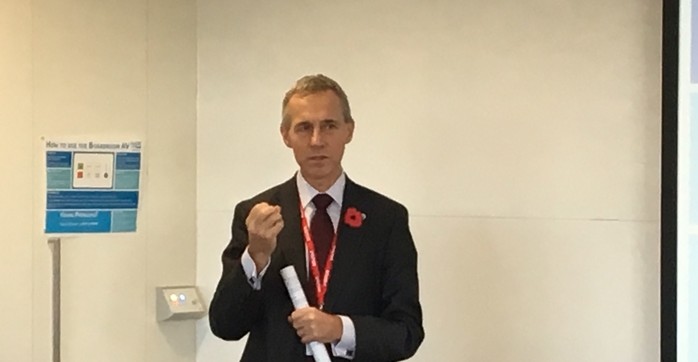RUMA has announced that former Chief Veterinary Officer Nigel Gibbens is joining its Independent Scientific Group. He will sit alongside other eminent researchers and scientists from the veterinary, medical and microbiological field, providing insight and recommendations to inform RUMA’s policy on the responsible use of medicines in farm animals.
Speaking of his decision to join the group, Professor Gibbens says he has been very impressed with recent progress made by the UK livestock sectors on reducing, refining or replacing use of antibiotics. But he says it is now time to look forward to the next steps, and how science can support further efforts to reduce on-farm antimicrobial use.
“The UK livestock sectors are to be congratulated for responding to the challenge of antimicrobial resistance, especially in working with the Targets Task Force to set challenging targets for antibiotic use through to 2020,” he says.
“Delivering those targets is going to rest on the principle of rearing healthier, more resilient animals. This means that while antimicrobial resistance is an important threat, tackling it is also a significant opportunity to make long term sustainable changes which could raise UK farm animal health and welfare to a new level.”
He points out that a strong evidence base around antibiotic use, and health and welfare improvements for our farmed livestock, should be integral to the stated aspirations within the Government’s consultation ‘Health and Harmony: the future for food, farming and the environment in a Green Brexit’.
“RUMA’s ongoing leadership in AMR mitigation through excellent animal husbandry in all production systems can help to differentiate UK produce and elevate its reputation post Brexit,” explains Professor Gibbens.
“But to achieve this, and other goals, we need sound science to underpin all the decisions we make. Sitting on the Independent Scientific Group is a great opportunity to do just that – use the knowledge and insight that I’ve been fortunate to acquire in over 30 years as a Government veterinary officer.”
Professor Gibbens qualified from the Royal Veterinary College in 1981 and worked in general practice before completing a Masters Degree in Tropical Veterinary Medicine at Edinburgh. After spells in Belize and Yemen providing government-led veterinary services, he returned to the UK as a Government Field Veterinary Officer in 1990. A succession of lead veterinary roles within Government followed, culminating in his appointment as Chief Veterinary officer in 2008, a role he retired from in February this year.


